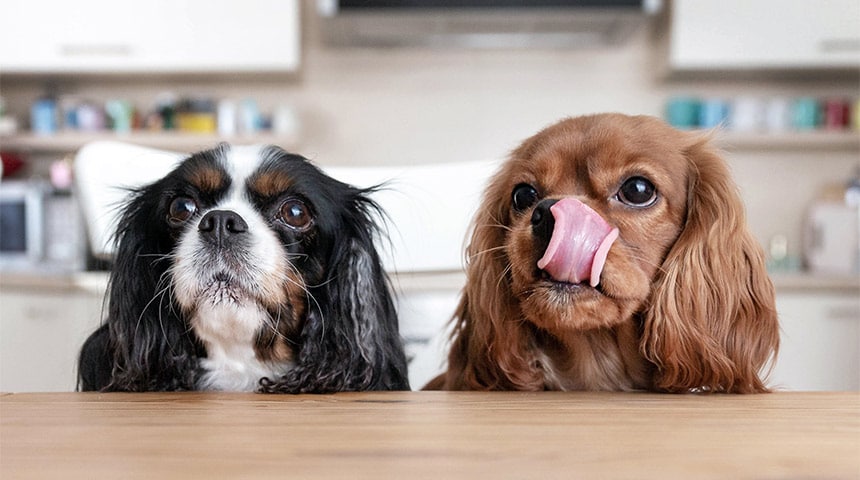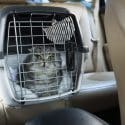Chocolate is probably the best known of toxic foods - its toxicity comes from an alkaloid called theobromine. This substance is toxic in cats and dogs with a dose of 100-150 mg / kg; the darker the chocolate, the richer in theobromine, so don’t take any chances and never give chocolate to your pets. The effects of theobromine affect the nervous system and the heart of your cat or dog.
Caffeine is also very toxic at very low doses. Symptoms of caffeine poisoning include hyperactivity, diarrhea, vomiting, muscle tremors, fever and even convulsions.
Grapes and raisins are also toxic, which means that a bunch of fresh grapes can be fatal for a dog weighing ten kilos. As raisins have a higher concentration of the toxic agent, the toxic dose is smaller. Each animal’s sensitivity to toxic agents will be different. Grape poisoning can cause kidney failure in your pets.
Because cats and dogs metabolize alcohol poorly, it can cause gastric problems (vomiting, diarrhea, etc.) and nervous system disorders (reduced coordination, convulsions, etc.). Ethylic coma can lead to death. Never allow your pet to consume alcohol or food containing alcohol.
Human medication is also toxic to animals and can be one of the causes of emergency consultations. Make sure to store all your medicines out of reach of not only children, but also your pets. Some medications can cause ulcers while others kidney failure.
All pesticides and some shampoos are neurologically toxic to animals. The main ingredient in many poisons for rats and mice, Coumarin (D-Con), disrupts blood’s coagulation abilities and can therefore affect your pet in the same way, even if it eats a mouse that was poisoned. Antifreeze is also dangerous for your cats and dogs. Many animals like the smell and taste of antifreeze, but as this product is very toxic it becomes deadly, even ingested in small amounts.
If your pet has ingested a toxic agent, whether it’s food, medical or other, contact your vet as soon as possible. Make sure you have the following information ready:
- The species, breed, gender, weight and age of your pet
- Symptoms of your pet
- The name of the toxic agent (if known), the amount consumed and the time
- elapsed since exposure
- Packaging of the toxic agent
If you suspect that your dog or cat has ingested toxic foods or products, contact our teams as soon as possible. A single visit can help you get the best treatments for your pet's recovery.
Here is a non-exhaustive list of common foods that can be toxic or even fatal to your pet:
- Garlic
- Alcohol (beer, spirits, wine, food containing alcohol)
- Fat foods (fast food leftovers, junk food or food cooked in fats)
- Mouldy foods
- Avocados
- Candy (especially those containing xylitol, a toxic sweetener)
- Caffeine (coffee, tea, cola, energy drinks, diet pills or anything that contains caffeine)
- Mushrooms
- Chocolate
- Chives
- Compost
- Hop cones (used to make homemade beer)
- Rhubarb leaves
- Leaves and stems of potatoes and tomatoes (green parts)
- Liver (small amounts of liver are acceptable, but an excessive consumption can cause vitamin A toxicity)
- Mustard seeds
- Currants
- Milk and dairy products
- Nutmeg
- Walnuts and Macadamia nuts
- Fruit pits (apricot, cherry, and peach)
- Raw eggs, meat or fish (may be contaminated by different pathogens including
- Salmonella and E. coli bacteria, which are responsible for a large proportion of food poisoning cases)
- Onions (in any form - powdered, raw, cooked or dehydrated)
- Uncooked bread or yeast dough
- Apple seeds
- Grapes and raisins
- Salt
- Tea (contains caffeine)
- Xylitol (an artificial sweetener that’s toxic to animals - may be found in candy, gum, toothpaste, pastries, and certain diet foods)





